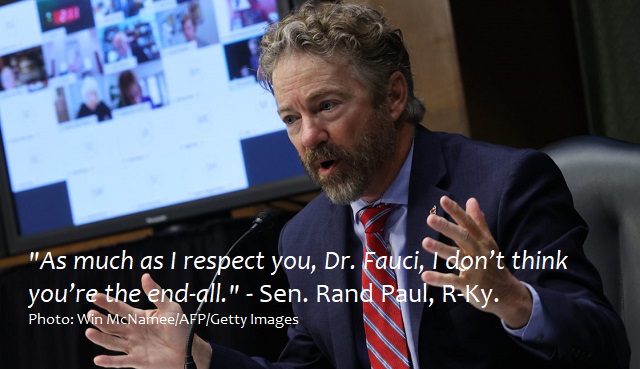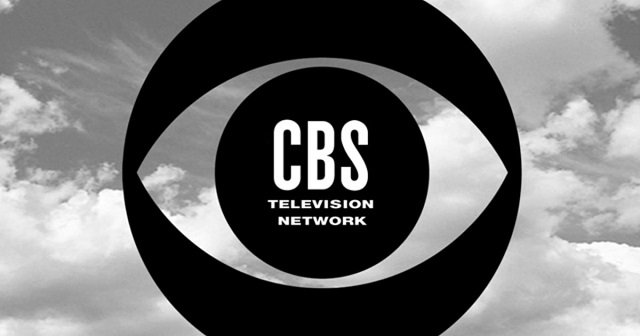
If “the American dream” describes overcoming the challenges of a difficult childhood; serving in the armed forces; having the financial freedom to support not only yourself, but also your family; making a difference in your community through political engagement; and finding love along the way, then Anna Paulina Luna is living the dream.
Luna joins the “Problematic Women” podcast on the eve of the 78th anniversary of the creation of the Women’s Auxiliary Army Corps in 1942 formally allowing women to join the armed forces. She shares her journey of growing up in a single-parent home in California as a Hispanic American and finding confidence, success, and a husband through her Air Force service.
Plus, in the wake of Mother’s Day, we take a moment to say “thank you” to all our wonderful mothers and chat with Lauren’s mom, Karla Evans. And as always, we’ll be crowning our problematic woman of the week.
Listen to the podcast below or read the lightly edited transcript. Enjoy the show!
In these trying times, we must turn to the greatest document in the history of the world to promise freedom and opportunity to its citizens for guidance. Find out more now >>
Virginia Allen: We are joined by Anna Paulina Luna, a conservative political activist and a retired Air Force veteran. Anna, thanks so much for being here.
Anna Paulina Luna: Thank you for having me on, I’m super excited to be here.
Allen: Tomorrow is the anniversary of women being allowed to serve in different branches of the military, so we’re really excited to talk with you about your military service. But first, I just want us to take a minute to talk more about who you are and learn more about your story.
So, Anna, you are a Hispanic American. You were raised by your mom in Southern California. Could you just take a minute to share a little bit about your childhood with us?
Luna: Yeah. I think it’s always interesting doing the political crossover because I feel like so many people, especially in this really digital age, try to put on this front that they’re just these perfect people. And I find that when you really own who you are, when you own your childhood and your upbringing, it actually allows other people to connect with you.
So I found one of the most powerful things has been for me to really talk about that, to give people a little bit of insight as to why I’m so passionate about what I believe in, and really why I believe in certain policies.
What a lot of people off first glance looking at me might not expect is that I grew up in the welfare system. My mom actually had me at 20, and she chose to keep me over an abortion. It was really us on our own from the beginning.
My entire family, not just on my mom’s side, but my father struggled with a very severe drug addiction that really took him away from me a lot of the time.
So not only did I have this kind of chaotic upbringing, but I knew that I really did want to make a change, and I thought at the time that I was going to do that through medicine.
I overheard that the military would pay for medical school, or pay for school in general. So, without telling my mom, I went and talked to a recruiter and I enlisted. I told her about a month before I was supposed to leave that I would be joining the military.
It was really the military that kind of launched me into what I say [is] success as an adult. It gave me that structure that I really didn’t have in a family life.
It was through the military that I was able to excel. And I tell people even to this day, “I will always support the military for that reason.” It was a huge factor in setting me up for success and really enabling me to help my family as well. But you don’t always have to have that victim mentality, you can accomplish anything you set your mind to.
It was through my hard work and dedication to my family and to myself that I was really able to change the outcome, I think, of my own life, my family’s life, and future generations.
So that’s why I’m very passionate and that’s why I share my stories, because I think that more stories like that need to get out there. And through my work with Prager, we’re hoping to really connect with people on that deep personal level and really stand up some great voices to help save this country.
Lauren Evans: What was going on in your head when you were 19 and joined the military? I think a lot of American youth are kind of in this arrested development and they feel like 19 is a really young age, but that was a really big commitment to make.
Luna: It was a super big commitment. And because it was really just my mom, me, my brother, my sister, we didn’t know of anyone in our immediate family that had been in the military. It actually wasn’t until I got out that I found out some of our extended family had either gone to Normandy or had been in Vietnam.
But at the time, I went and talked to a recruiter. I’d actually went and talked to the Army recruiter first, and I was supposed to join the Army as a medic.
And then I went over to the Air Force recruiter prior to me going to MEPS, which is where you do your in-processing before you leave. And the Air Force recruiter is like, “I think I can get a better gig, let me tell you about what jobs we have available.”
But when you’re so young, and you don’t really have a lot of that guidance that I think some people have, you really don’t, I think, understand the magnitude of what you’re about to do, especially when you join the military.
So for me, I went from being in LA, kind of a different lifestyle, to really joining the military, and then that was it, I was gone, I wasn’t at home around my family, I wasn’t at home around where I grew up, I was in a completely different world.
For me, changing that, taking me out of a place of comfort, and putting me somewhere new where I had to excel on my own if I wanted to make it, that really builds character, and that was, I think, where I really started to grow as an adult, was during those early years in the military.
Really, today, it’s weird, but I only got out of the military two years ago. So I really still do have a close tie to the military community because so many of my friends are still actively serving.
Allen: Wow. So amazing. Anna, we want to play just a short clip of an interview you did with PragerU, talking about your time in the military. Let’s take a listen for just a moment.
Luna: The military is one of the best things that, a lot of times, people can do to get out of really bad situations. And it deeply almost angers me when I hear people say that the military targets minorities, and that it’s not a good thing, because not only was I able to help myself, and really, as an adult, get the guidance and the structure that I needed to really excel, but I was able to also help my family.
And I think that for someone like myself, I mean, what other place in the world can a young woman join the military and then help their family to the point of really making changes that impact future generations? And I think that that was something that I will forever be grateful for the military for.
And when I still talk to younger kids, even kids from rougher areas, I’m like, “Hey, look, you should consider joining, because for me, it was life-changing and I don’t regret that decision.”
Allen: So, Anna, let’s unpack for a minute just a little bit of what you say in this clip. You mention that your service changed not only your life, but also really empowered you to be able to affect the lives of your family members. Can you just explain a little bit more about what you mean by that?
Luna: Yeah. So my mom, again, going back, she was a young single mom. … We were in the welfare system. She was very much so, I think, dependent on different loans and sometimes government assistance. But when I joined the military, I was able to not only send money back home, but in an instance, I think I talked about it earlier, but I was able to help out my dad.
What a lot of people don’t know is that my dad was homeless for a little bit. And it was, again, the military giving me a job, a stable form of income, taking care of me completely that I was actually able to move my father out to Florida, and was really, I think, one of the first times in his life that he truly stayed clean, and that he still is.
So had I not done that, had I not been able to send money back home that would help pay for my sister’s art lessons—and then later on she was accepted into one of the best art schools, not even just in the world, but in the country.
All of these things—people don’t realize, but sometimes you never know who’s going to be the one to reach back and really help out and make changes.
But it was that team effort to where I was able to kind of provide the air support for my family that we needed that’s really impacted and made changes.
Frankly, my sister, she didn’t just go on to attend this incredible art school—I mean, she’s there on scholarship—and it was because I was able to hep my mom out, help send her to those lessons. My dad is now sober because I was able to move him from a place that he was in, a very dark area, to an area where he could focus on his life, get his life together.
And I don’t have a perfect family. And I’m not saying that. But I’m saying that through hard work and dedication you can make those changes.
Sometimes you don’t realize how much something as small as me going into a recruiter’s office would help change the next 10 years, the next 20 years in outcomes of your family. But here I am. And it’s really resonated with a lot of people. And I’m not just the only one.
So you meet a lot of people in the military that are from all walks of life. They’re from sometimes the inner city of Chicago, sometimes they’re from well-to-do families.
But the one thing that brings you together is your sense of purpose to serve the country, your uniform, the fact that you are away from home, and that the military, your sergeants become your parents, your younger enlisted members become your brothers and sisters. You spend holidays together. And that deep form of bonding can really help, especially people like myself who didn’t necessarily always have that.
So I still, to this day, I know this is going to sound like a military recruiting ad, but I’m a huge fan of the military. And to tie this to politics, I feel like you have so many politicians that say they want to help out veterans, but they don’t. And they know that veterans are great for photos, but then don’t genuinely have that passion and drive to really help represent veterans, focus on veterans’ issues, and take care of our service members.
I hope to help other leaders stand up, so that we can be advocates for the vet community.
Evans: What are some of those ways that we can be advocating for the veteran community?
Luna: I’d say right now, especially in regard to how many people are now coming back, you have less than 1%, I believe the number is, of the U.S. population now having served. And I think when we’re talking on issues, and this is something that’s even in the military community considered really taboo, but the topics of post traumatic stress disorder.
You have so many people that that word in itself, that term “disorder,” they don’t want to be branded with that, they don’t want to be labeled with that, and they don’t want the stigma that comes along with it.
So sometimes people won’t get the help that they need because of the fact that they don’t want to be in that category. But what ends up happening is, these people become isolated, and because of that, that’s when you have the higher instances of even suicide with post-traumatic stress disorder.
So … let’s say you’re the owner of a company, if there’s a way that you can give back to veterans organizations, do it. If there’s a way that you can hire veterans, do it.
But also, if you’re friends with a veteran, ask them how they’re doing, ask them about their service. A lot of people don’t realize that sometimes just having a simple conversation to take the time and say, “Hey, how are you doing?” I know this is a busy world, everyone is on their phones all the time, but having that intimate conversation, that does make a difference.
And even now, here where I live, I work with different veterans organizations. And even though I’m still doing the political circuit, I reach back, and I try to lift those around me that I know are going to help further veterans’ causes.
But I’d say right now, one of my biggest goals is to really help change the stigma nationally of what post-traumatic stress disorder is. And then also ensure that people are making sure that veterans’ rights aren’t being thrown onto the chopping block in policy.
I love what The Heritage Foundation is doing with veterans. I think it’s incredible. And I think that we need to be the voices sometimes for those that might not want to speak up on these issues. So that’s what I talk about. Sometimes I talk about the uncomfortable, and I think that that’s needed right now.
Allen: It is needed. … We all need to be made a little bit uncomfortable sometimes.
But, Anna, one of my favorite things is just to sit and listen and hear the stories of veterans, veterans like yourself that have served their country, have sacrificed.
Are there any stories that you want to share today that are just really reminiscent for you of your time in the Air Force and what it means to you to serve your country?
Luna: There is a ton. But I’d have to say, one of the things I’m never going to forget is my first sergeant.
The first sergeant that I ever had that I really connected with, his name was Sergeant Haywood. And actually, to this day, [I] still keep in contact with him. But this was kind of when I realized, “Wow, the military is showing me something.” I had my adult moment where I realized the military was teaching me some things.
And you have Sergeant Haywood, and he was from Inglewood, which is in California, at the time, a really rough area, and still somewhat is. But he became my sergeant. And you had me, which people a lot of times look at me and they assume a lot. I’m kind of tiny, they probably think I’m just hanging out at the Starbucks with a mocha late and UGG boots on.
But he was from this really rough area. And I would talk to him at work and we would hang out. Then after work, I finally saw him and I realized that I was kind of judging people based on how they dress. And I didn’t realize that Sergeant Haywood was from the opposite side of town as me. But it was the military uniform that brought us together, and it enabled me to look past that.
That was, I think, kind of one of my first growing, mentally growing experiences. But the other thing that really stuck with me was, in 2014, my husband was shot in Afghanistan.
At this point in time, I really didn’t understand, I guess, what the concept of post-traumatic stress disorder was. And the military will constantly give you CBTs, it’s called computer-based testing. … It’s basically PowerPoints where you check in, walking through the training.
So you had a lot of people that would get the CBT, there’d be slight mentions of it. But no one actually who had gone through an experience of what it was like to have a family member go through that or a community go through that. And what’s been really unique is that my husband is an Air Force special operator. So what his job is is combat control.
When he was shot in Afghanistan, I knew that he would be physically OK from where the injury was. But when I got up to Walter Reed Medical Center in Maryland, about a week after he had been shot, to meet him, and I was going through the hospital, and seeing really what happens after war, it wasn’t this glamorous thing that Hollywood makes it out to be.
It wasn’t like in the movie “Pearl Harbor,” where it’s this epic, positive love story. You had a lot of these people that were coming back physically and mentally in pieces.
When it showed me that and I saw what was happening to the community, what these families were going through, what the service members were going through, and then how certain people were really afraid of, I think, reaching out to get help, it really changed my outlook in, what was I doing on social media? What was I doing in my own community as a military member and then later on as a veteran to really help shed light on this issue?
I realized at that point that I needed to be focusing and making this a topic of discussion so that farther down the line I could help people like this that were coming back and dealing with it.
I ended up actually later on writing a book about really what my husband and I went through during that recovery process because so many marriages, so many people just didn’t want to talk about it, it was this private elephant in the room that I think people were going through and didn’t even realize that someone next to them might be having those same experiences.
My husband and I, we got through it. And it wasn’t easy, it was very difficult. But we made it, and we’re stronger because of it. We now talk about it to help, really, other married couples that might be struggling with similar issues, especially in regards to what’s faced in war time.
But that was something that will forever have changed my life, and … forever, I think, changed the objective of what I’m choosing to fight for, especially on veterans’ issues.
Evans: I think that’s what I love about you, Anna, that you always want to take your experiences and really help others with that knowledge. You met your husband while you both were serving, correct?
Luna: Correct. Yeah. I had joined with zero intent of getting … I wanted to just go to school, and like kind of a Beyoncé song, young independent female. And I met him, not even kidding, eight months after I joined. And we got married a month after we started dating. So it was very quick. That was 10 yeas ago.
Evans: Oh, wait, you got married one month after dating?
Luna: We got married one month after dating. So we were friends for a little bit prior, and then we started dating. He always jokes because he busted out of the friend zone. But yeah, it was 10 years ago. And I look back at that, and I was only 20 years old when I got married.
Evans: So what was that like? You were newlyweds and both in the service, which I imagine is a lot. And then you mentioned the major trauma that your relationship went through. Even now that you’ve transitioned to civilian life and he’s still serving, what has [being] married to a service member been like?
Luna: Well, I tease him all the time, especially when it comes time to get water before bed, I’m like, “I went through five combat deployments, or four combat deployments, go get me water.” I tease him about it all the time.
But it’s one of those things that I always tell people it’s really important, especially if you are in a relationship with a service member, to make sure that you’re friends first, because that kept us through all of the deployments, and all the hard times, and the injuries, and training.
My husband was in a unique job, especially as an active-duty member to work. He was not just deploying basically every six months. But then in between the times that he was deploying, he was going through training. So he really wasn’t around a lot.
But I stayed busy with college, and I was able to get my degree done, my bachelor’s in science. And then I was able to continue to move forward and really focus on my family, and just kind of keeping the house, redecorate ever so often. So I stayed busy.
But it is important to have a good network of friends, it is important to be friends [with] another service member before anything else, because that keeps you together through the hard times.
Allen: Such good life advice.
Evans: I still can’t get over you married your husband one month after meeting him, that’s so awesome.
Luna: I know. We didn’t necessarily advertise it either to people. We just knew people would be like, “What?” Especially now. But eventually when we did announce it, we actually ended up going to India, and we “eloped” in India. So we actually had this secret marriage for a little bit. … I’m very vocal on other issues, but I like to keep my relationship kind of private.
So we’ve been very fortunate enough to kind of have a really energetic and traveling spirit with one another. So when it came time to actually say, “Are we going to do a wedding?” … We went to India and had a blast and didn’t have to worry about wedding planning.
Allen: That’s so awesome. Oh, wow, I love that. Love your story. Well, Anna, since you left the military, you have become one of the most prominent Hispanic conservative leaders in our country. What kind of reactions do you get from people when they find out that you’re a Hispanic American and yet you’re very conservative?
Luna: It’s interesting because I get two completely different reactions. From those that are also conservative Hispanics, it’s like, “Finally. I align with you, you’re like me. Thanks God.”
But when it’s from very liberal, most of the time Democrat Hispanics, the first thing they actually bring up is my skin color and really, really racist undertones. I’ve been told, “Oh, you’re too white to be Hispanic.” Or, “You’re only half Hispanic so … you don’t count.”
And now, I know that that just for them is coming from a place of ignorance. So what I always like to say is, Barack Obama was half white and he’s considered the first black president. And with me, you can’t just box, especially the Hispanic community, into just one category. We’re not all short and Speedy Gonzales-like. And I don’t run around with a maraca and a sombrero just to prove how Hispanic I am.
But I can say that, on the back end, you have a lot of people that, I think, have really been programmed to think that being Hispanic is a certain thing. And the fact is that this Hispanic community is very diverse. You have Cubans, you have Mexicans, you have Puerto Ricans, you have Dominicans, you have Colombians, you have Guatemalans.
You have so many people from so many different areas, and the one thing that brings us together, especially in this country, is the fact that we have ideas that align with the Constitution, that we’re conservative, and that we’re Americans.
So, really, when it came time to kind of title the show for Prager, we wanted to really focus on that.
You have so many people coming from so many different backgrounds to talk about what their American story is, and that we don’t agree with identity politics, that we’re here to really bring this discussion to the forefront and say, “You can’t say that because someone is Hispanic that they have to vote a certain type of way.”
And you can’t take a community that’s really faith-based and has conservative values, and try to change that. Because at the end of the day, we all remember where we came from.
So I think in regards to people’s reactions, I mean, my close friends are not surprised. They all say the same thing, they’re like, “Well, we knew you were going to do something great.”
But when it comes to some of the people online that are really empowered by hiding behind their phones, it definitely does, I think, change their level of what they’ll say to you.
And people can just be mean. But I don’t sit there and I don’t dwell on it. I don’t read through every negative comment. If people want to be fine, that’s great; or be mean, that’s great. But I don’t have to sit there and subject myself to abuse. And so I don’t.
If people act like that, then that’s their own thing. But I’m not going to give them the time of day.
So it’s been mixed. From people that are conservative, you get positive, nothing is ever brought up about my skin tone. But when you get a very liberal person who happens to be Hispanic, even maybe sometimes less Hispanic than I am, the first thing that they bring up is my skin color.
And it’s very racially driven, and it’s almost sad, because if you’re focusing on my skin color and not the things that are coming out of my mouth, that’s how you know you’ve been programmed.
Evans: I think it’s Taylor Swift that said, “And the haters are going to hate, hate, hate, hate, hate.” So you just keep doing what you’re doing.
I want to bring it back to the reason why we’re talking today, and that is that tomorrow is the anniversary of women being allowed to serve in different branches of the military.
What does that mean to you as a female veteran that women, for a long time in our country, couldn’t easily serve in the same capacity that you did?
Luna: Having gone through the military training, and having done my job, and served my country, it’s a weird concept to think at a certain point, women weren’t even allowed to serve. But then you kind of look back at, historically, you had the Women’s Air Corps, the WAC. And then seeing really how women have helped kind of change the service as a whole.
I can say that I’m very, very proud to serve. And there’s just something about joining the military that really has given me, I think, the confidence that I need to now excel in this political arena. …
It’s something that I take great pride in. So to imagine that I wouldn’t have been able to serve is just a weird kind of foreign concept to me because it makes up so much of who I am, even now that I’m no longer in.
My job in particular, I did air field management. It’s called an AFSC, but that’s … kind of your category of learning. So it was “one, Charlie, seven, five, one.” And I actually worked to do flight plans for pilots. So in the sky, you have basically invisible roadways for airplanes. And so you have to work with the [Federal Aviation Administration] to block those out.
Then I did inspections for the airfield, I worked side by side with many pilots, from fighter pilots to gunship pilots, to the stealth bomber. And I also helped do arrivals and departures of some pretty high-level people, to include, at the time, Vice President [Joe] Biden.
I can tell you that, with the military, you always want to make sure that you have an administration that really supports the military. And there is something to be said about the morale now in the military under [President Donald] Trump, which is through the roof, versus at the time, even back in the day, with [President Barack] Obama and Biden.
Having been there when Biden came through, I can tell you that, for sure, I am very excited that President Trump is in office, because when you have people going to fight your wars, you want to make sure that these people are taken care of, and the Trump administration does do that for military members.
Allen: Anna, we’re certainly so thankful for your service and for all of the incredible individuals who have made that sacrifice and that decision to serve their country. There is so much that we are forever indebted to you all for.
But, Anna, last question I want to ask you, this is a question that we love to ask our guests that come on the show because we get so many different answers, do you consider yourself to be a feminist? Yes? No? Why or why not?
Luna: I think the modern-day term for what a feminist is has really changed over time. I support women, I support strong independent women in the workforce, whether it’s the military, or politics, or any other capacity. But the one thing that I think that the modern-day feminist movement has really targeted is men. And I don’t understand that.
You can be a strong independent woman for pro-life causes, for women empowerment, but you don’t have to hate men in the process. And I love my husband, I respect him; I love my father, I respect him, even though he’s not perfect. But I feel like that that’s really been hijacked.
So when people ask me that question, I think in the true, what initially feminism started out as, yes, I would be considered a feminist in that sense. But what it’s been hijacked, and what it’s become today, I wouldn’t consider myself that type of feminist, the type of feminist that really targets men.
So I say that I still will promote what I believe in, I will still fight for women in any capacity and really for being, I think, a good role model for the younger generations. But I don’t think you have to hate men in the process.
Evans: Anna, thank you so much for your time today. It’s been a pleasure talking with you.
Luna: Thank you so much, you guys.
PODCAST BY
Virginia Allen is a news producer for The Daily Signal. She is the co-host of The Daily Signal Podcast and Problematic Women. Send an email to Virginia. Twitter: .
Lauren Evans is the multimedia manager for The Daily Signal and The Heritage Foundation. Send an email to Lauren. Twitter: .
A Note for our Readers:
This is a critical year in the history of our country. With the country polarized and divided on a number of issues and with roughly half of the country clamoring for increased government control—over health care, socialism, increased regulations, and open borders—we must turn to America’s founding for the answers on how best to proceed into the future.
The Heritage Foundation has compiled input from more than 100 constitutional scholars and legal experts into the country’s most thorough and compelling review of the freedoms promised to us within the United States Constitution into a free digital guide called Heritage’s Guide to the Constitution.
They’re making this guide available to all readers of The Daily Signal for free today!
EDITORS NOTE: This Daily Signal column is republished with permission. ©All rights reserved.















